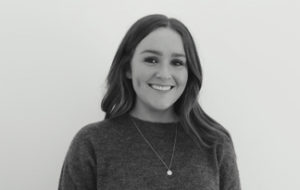We can’t predict the future, but we can actively try to shape it. We can’t change the past, but we can actively learn from it.
Forming and maintaining relationships was a key factor in ending Northern Ireland’s 30-year conflict, and it remains a key factor in our continued efforts towards sustainable peace. The three main relationships are: the relationship between the two communities in Northern Ireland, between Northern Ireland and the Republic of Ireland, and between the Republic of Ireland and Britain.
One of the reasons why these three relationships were able to flourish after the pain of the Troubles was because of the frictionless and largely invisible border on the island of Ireland and down the Irish Sea. As a result, for decades both communities in Northern Ireland have enjoyed open and uncomplicated social, cultural and economic exchanges with the Republic of Ireland and Britain. Such exchanges have helped rebuild trust between communities and have guaranteed the protection of both Irish and British identities: a stark contrast to the days of the Troubles.
A hard border on the island of Ireland or down the Irish Sea runs the risk of undoing all this progress. It runs the risk of deepening segregation and possibly causing a resurgence of violence. That is why I got involved in Derry Girls Against Borders (DGAB).
DGAB was founded by a small group of Derry women. We are a non political civic campaign with two simple objectives: first, we want to provide ordinary people with a platform to share their concerns about how a hard border on the island of Ireland or down the Irish Sea would negatively impact their way of life, and second, we want those in power in Belfast, London, Dublin and Brussels to listen.

Sarah Wallace (DGAB)
Brexit debates, including the debate about the border, can be so complex that often people switch off; it is hard to keep up and to know where you fit into the conversation. DGAB wants to bring the discussion back to the people that matter the most. Politics is about people after all. Loud civic voices are an important part of any democratic society, but perhaps they are even more important now given these unprecedented times we find ourselves in.
DGAB wants to hear those civic voices loud and clear. We want stories from as many people as possible: from Derry and beyond, female, male, young and old. Given the current political stagnation, it is fair to say if you don’t tell your story, no-one else is going to tell it for you. So let’s be loud, let’s be counted, and let’s make noise.
So far our campaign has received hundreds of personal stories. These stories are the foundations upon which we have built and continue to build the support for our four-pronged petition which DGAB will hand-deliver to those in power in Belfast, London, Dublin and Brussels. On Monday evening the people of Derry came together to mark the official launch of this petition. Testimonies were heard and a call to action was issued, encouraging every single person to take responsibility for safeguarding our shared future. Borders affect us all.
If you too are worried and want your concerns about a hard border on the island of Ireland or down the Irish Sea to be heard, join us and help us make noise. There is no such thing as too many stories or too many signatures. If you have a story to tell, tell it. If you want it to be heard, sign our petition. If you want this campaign to be a success, share the petition with friends, family, work colleagues, at local events and, if you have access, capitalise on social media.
Together we can ensure that relationships within and across these islands continue to grow and prosper and that Northern Ireland continues to look forward and never backwards.
Sarah Wallace is part of the Derry Girls Against Borders Movement. You can follow her on Twitter: @SarahCWallace91
Derry Girls Against Borders want your stories and thoughts – contact
derrygirlsagainstborders@gmail.com
Follow on Facebook: @derrygirlsagainstborders and Twitter: @DerryGirlsAB
